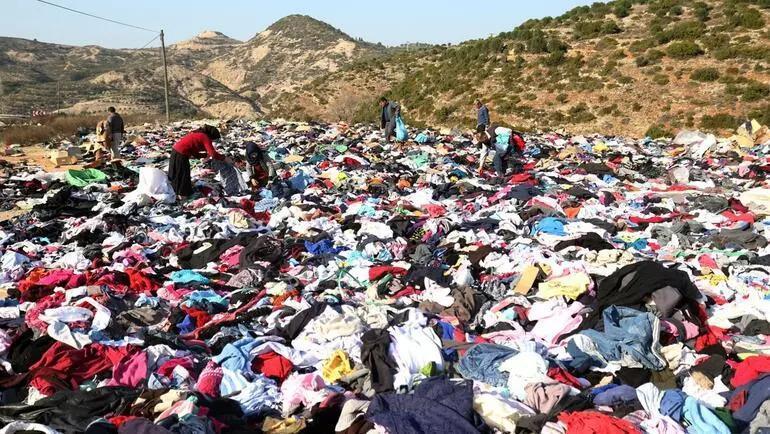
Piles of clothes and other items were seen scattered on the side of the roads leading to the quake zone as truck drivers lookout for ways to avoid standing in long lines before the Disaster and Emergency Management Presidency’s (AFAD) centers for registrations and security checks.
Following the devastating quakes in Kahramanmaraş, an aid mobilization was launched across the country, and many non-governmental organizations and philanthropists sent aid to the quake zone.
Unfortunately tons of clothes collected for the disaster victims were scattered on the side of Yayladağ-Hatay road.
Earthquake survivors were seen trying to pick up what suited them among the pile of clothes, creating an unpleasant sight.
In 11 provinces, AFAD coordinates the distribution of all aid. AFAD officials register the aid materials and then regularly deliver them to quake survivors.
Some trucks coming from distant provinces leave the clothes and materials at the city entrances in order to avoid waiting in line in front of AFAD centers, which has led to an unpleasant situation.
Meanwhile, Prof. Dr. Burcu Balçık, an expert on disaster management, stated that this situation is common in humanitarian aid logistics, yet there are various ways to prevent this from happening.
“We do not see such a picture in the aid provided to institutions that are organized at different levels such as storage, sorting, labeling and transportation,” Balçık said.
She also pointed out that people should provide cash aid to organizations they trust instead of material aid.
People’s needs change constantly when it comes to a disaster, Balçık said, adding if the quake zone is in urgent need of tents one day, it might change to blankets or hygiene products the following day.
Cash aid is also valuable in terms of supporting local producers and shopkeepers as organizations make bulk purchases from them when needed.
In this way, the logistics costs of aid to be sent from metropolitan cities can be reduced and the money left can be used for other aid, Balçık said.
She suggested that if possible, people should regularly make small donations instead of large one-off donations.
“The post-earthquake process is a long one. It is not enough to just save the day,” she said.